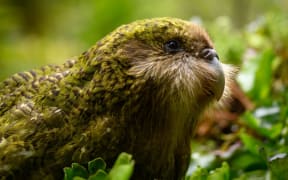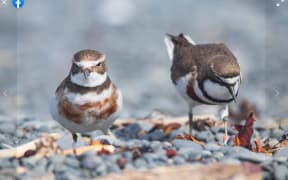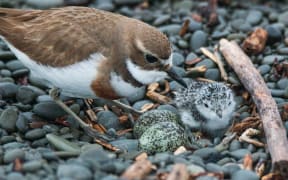Campers and other beachgoers on the North Island's east coast are urged to be wary of nesting shorebirds in and around the Gisborne district.
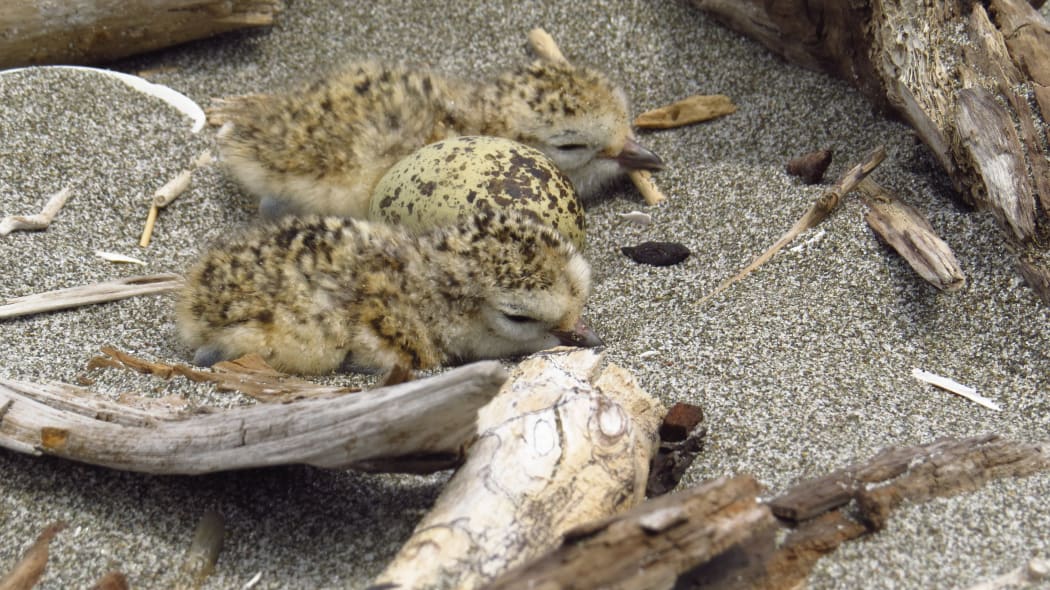
Driftwood provides good cover for the chicks and a level of protection from people on foot and vehicles. Photo: Supplied / Mithuna Sothieson
Department of Conservation ranger Jamie Quirk said New Zealand dotterel, banded dotterel and variable oystercatcher nesting sites could be found in coastal areas, around rivers and streambeds from Hicks Bay to Mahia.
He said many of the birds were now nesting with chicks and were at risk of being disturbed by people, vehicles and dogs.
"At Turihaua beach there has been some disturbance by people as the nests are close to the mouth of the Turihaua stream," Quirk said.
New Zealand dotterel (Tūturiwhatu pukunui) nested anywhere from the high tide mark to the base of dunes or on riverbeds. They layed two or three eggs in nests which were well camouflaged and could be easily crushed by unsuspecting beach users.
The once widespread species is now endangered, with only about 1700 birds left, making dotterels more at risk than some species of kiwi, DOC said.
They are mostly pale-grey on the back, with "off-white underparts" which becomes flushed with rusty-orange colour in winter and spring. They have a prominent head, large dark-brown eyes and a strong black bill.
Banded dotterel (Charadrius bicinctus) have a narrow black band on the neck and a wide chestnut band on the breast during the breeding season.
Variable oystercatchers (Haematopus unicolour) breed in pairs and lay two to three eggs in nests which are usually simple scrapes in the sand.
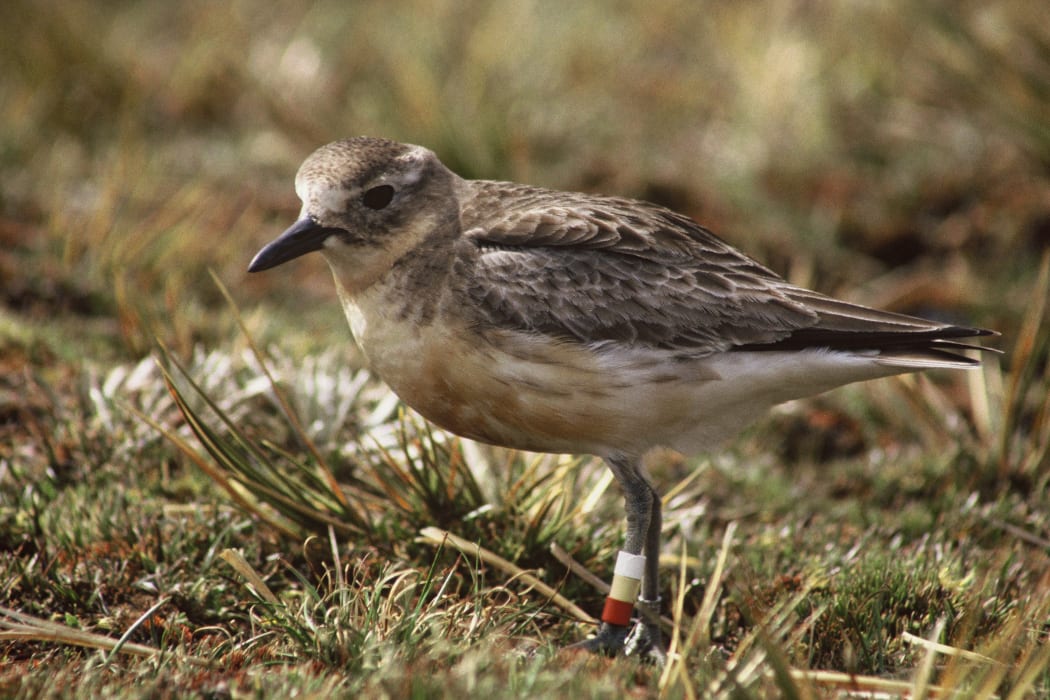
It would be much appreciated if you step lightly near nesting sites this summer. Photo: Supplied / Mithuna Sothieson
They are a "large heavy-built shorebird". The adults have black underparts which vary from all black through a range of 'smudgy' colours to white.
Chicks, which are vigorously protected by both parents, fly at six or seven weeks old. Late chicks may not fledge until March.
Gisborne District Council freedom camping compliance officer Michelle Lexmond said trailbikes and speeding vehicles on beaches caused long-lasting damage to the fragile ecosystems.
Fishers could further reduce their impact on the environment by taking fishing line home with them.
Quirk said these were small and effective measures to "give these birds a fighting chance this breeding season".
